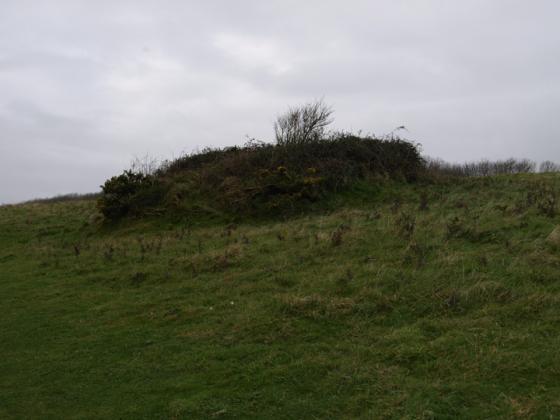
Image Credit: Environment Agency copyright and/or database right 2015.

Image Credit: Environment Agency copyright and/or database right 2015.

Somewhat, er, overgrown. Nevertheless a fine hill fort with massive ramparts and ooodles of vibe


The ‘ritual’ function of Iron Age earthworks is down played by some... but when Nature takes over once again, they can simply take your breath away through much more subtle means than sheer brute force.

Some of the most powerful outer defences I’ve ever seen... the inner are simply awesome.

Inner......

Outer rampart on a perfect summer’s late afternoon.

Inner rampart.... the vibe is completely different under foliage.

Outer rampart.

The – frankly awesome – inner rampart.

The powerful outer rampart...... the inner rampart is tree-clad, to right.

The south west corner looking north.

From the ditch in the south east corner.

The eastern inner bank and ditch and outer bank.

This is a large 18th century folly in the north part of the fort interior.

Weatherby castle from Double barrow looking north.

The western inner bank.

The south east corner of the inner ramparts.

The outer western rampart from the top of the inner bank.

The eastern rampart looking south.

The southern rampart from the west.

Weatherby castle from the north west.
The fort was – is? known by another name:
We remember passing a day pleasantly enough in tracing one of the last-mentioned relics of olden time, midway between Blandford and Dorchester, which the people to this day call Castle Rings. Our stay would not allow us much research; but we finished our excursion by starting from Milborne, on foot, across the fine expanse of Dorset, the bold ridges of Southampton, where the artificial luxury of a stage-coach put an end to all our enjoyment of romantic nature.
p203 of ‘The Mirror of Literature Amusement’ by John Limbird (1830).
This medium sized Durotrigian hillfort just looks like a large copse even from a few feet away.However once inside the entrance, it is a sophisticated multiple ditch and banked enclosure.It has a high a c.30ft. bank all the way around its centre, on its western edge there is a c.60ft. terrace with a low earth bank which drops steeply into the valley below.The folly is a magnficent piece of 18th. c. pointlessness,but as this fort is so heavily wooded it’s impact is limited.
Weatherby Castle as it is called locally, has an obelisk at its summit ( 101m above sea level ), It is very well hidden, on top of a hill near Milbourne St Andrew. The area was originally a hill fort as can be seen by the ditches that still surround the summit.
Slightly more info and a picture of the obelisk can be seen at....
follytowers.com/weatherby.html



































































































































